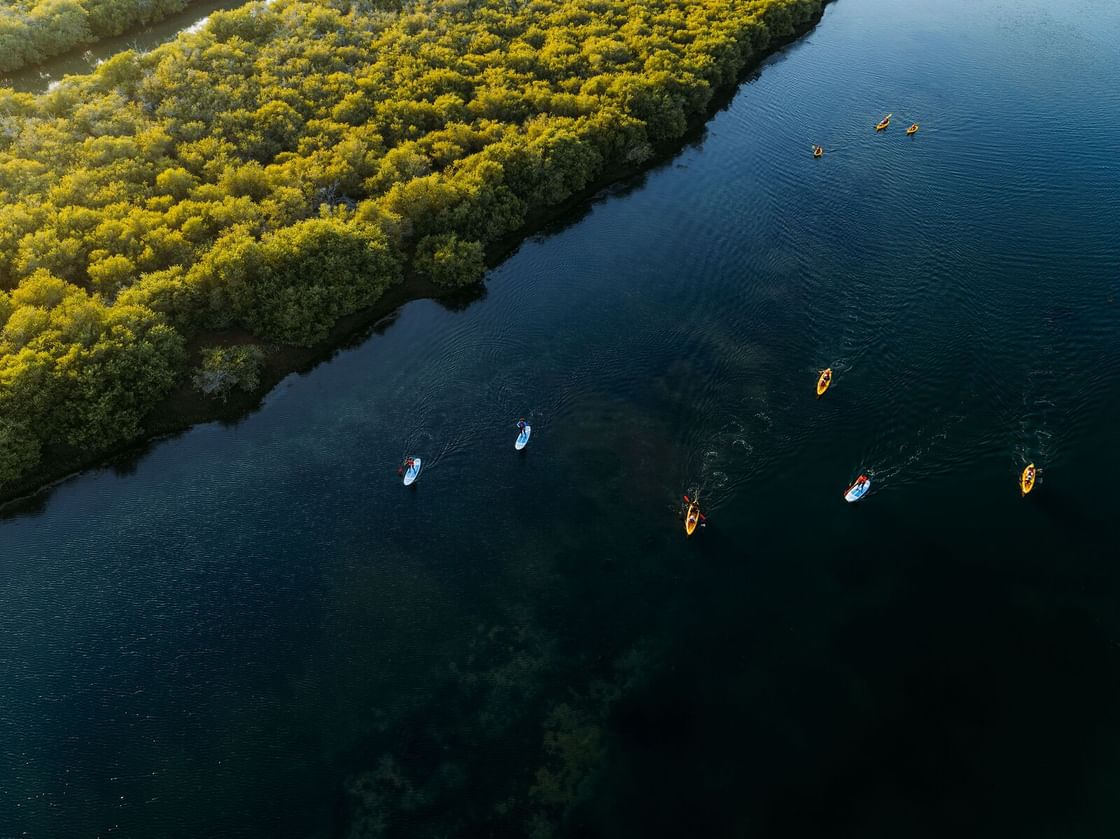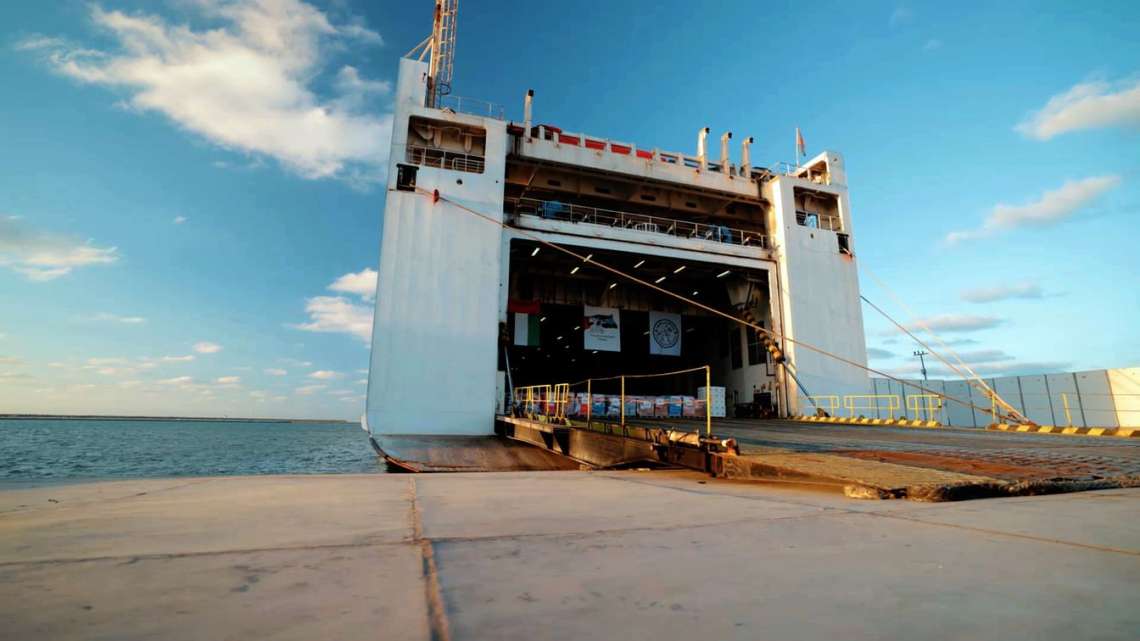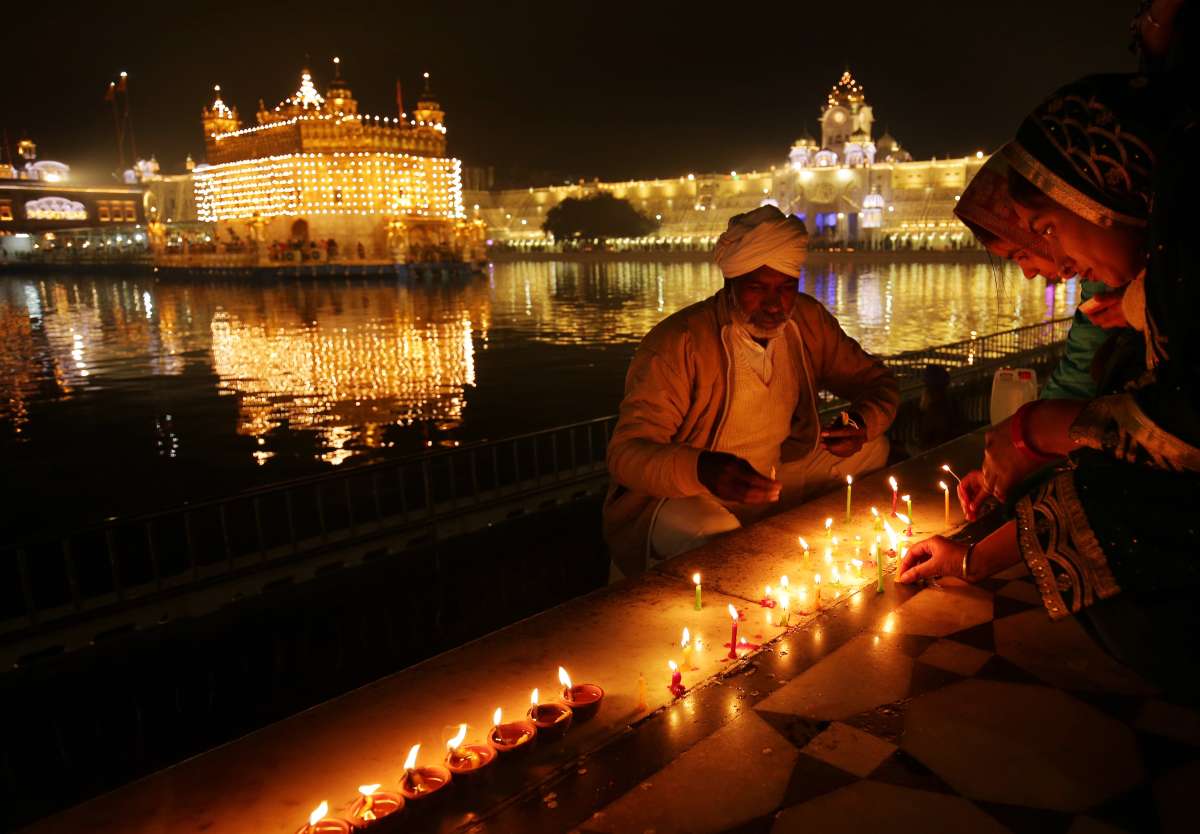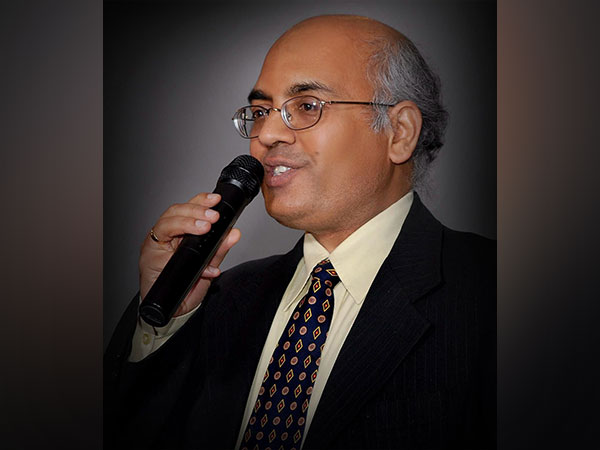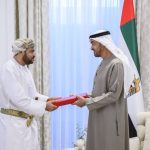The Finance Minister of India made the comments during a virtual session at the inaugural event of India Global Forum Middle East and Africa 2023 (IGF ME&A) held in Dubai.
India’s Finance Minister Nirmala Sitharaman called for concrete action on climate funding and transfer of technology at the upcoming global climate summit COP28, where policymakers and governments will converge to chalk future strategy for climate mitigation.
The Finance Minister made the comments during a virtual session at the inaugural event of India Global Forum Middle East and Africa 2023 (IGF ME&A) held in Dubai on Monday.
“India will certainly be pushing forward to showcase what it has achieved with its own funds. The Paris commitment given by us has been funded by us. We didn’t wait for the hundred billion that is never on the table. A lot of talk, but no money coming on the table. No pathways to show how technology is going to be transferred,” Nirmala Sitharaman observed.
Climate finance typically refers to any financing that seeks to support mitigation and adaptation actions that will address climate change.
Demanding action instead of words, the Union Minister said, “Particularly for developing and emerging market economies, funding this is going to be a huge challenge. So, I would think the conversations can happen; a lot of talks can happen but eventually, COP28 should show the direction, both for the transfer of technology and for the actual funding.”
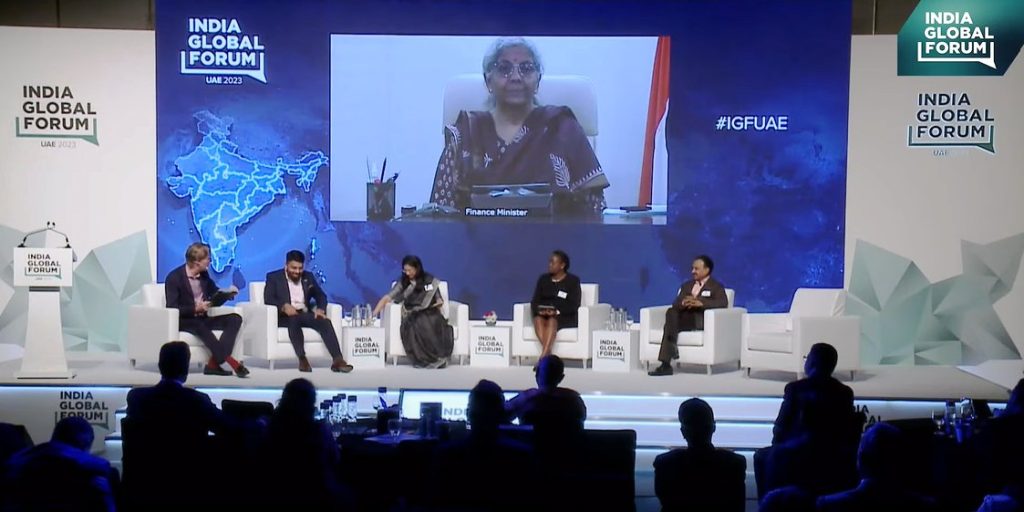
The 2023 United Nations Climate Change Conference or Conference of the Parties of the UNFCCC, more commonly referred to as COP28, will be the 28th United Nations Climate Change Conference, which will be held from November 30 until December 12, in Dubai.
While she admitted that there would be challenges, Nirmala Sitharaman said that the current geopolitical tensions in the Middle East would not affect the ambitious India-Middle East-Europe Corridor (IMEEC) that was announced during the G20 Summit back in September.
“It is a vision for long-term considerations and it is going to be a long-term project. It’s not just going to depend on one or another major event pertaining to the area. It is going to be pursued because India has a very good relationship with each of the Middle East countries. So, IMEEC, or the India, Middle East, and Europe Economic Corridor is not going to be dependent on one or the other major event of concern, but it is something on which the vision drives the implementation in the long run,” she noted.
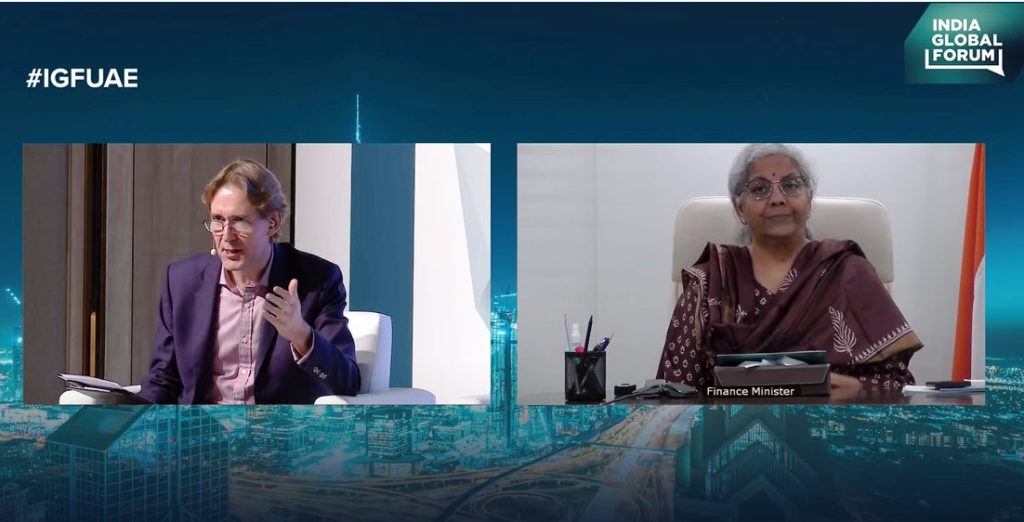
“So, it’s going to face challenges alright, but it has got its own strengths, and countries who are directly or indirectly involved with this project are absolutely clear that this, through India, is going to be critical for global trade, global partnerships and also making sure that this corridor will benefit each one of these countries,” she said.
Under the theme ‘Unleashing Ambitions,’ IGF ME&A convenes business leaders, policymakers, and thought leaders from India, the Middle East, and Africa to discuss opportunities for further collaboration and growth between these regions through a series of exclusive networking opportunities, panel discussions, and keynote speeches, covering a range of topics including trade, investment, innovation, technology, and sustainability.
UAE’s AI Minister, Omar Al Olama, emphasised the indispensability of artificial intelligence and its impact on society.
“If anyone, whether it’s in the UAE or another country, says we’re going to stop or not allow you to use these tools, how will it impact your quality of life? It’s going to have a detrimental impact on your quality of life. This is the fact of the matter. That’s why countries like India, for example, went down the non-conventional path of creating their own platforms, which I think is very smart and really the way that many countries of that size need to go. In that sense, AI is driving the economy. AI is impacting society. And AI is today the technology that is enabling people to go into the 21st century in the right way. Governing it the right way, regulating it the right way and developing certain forms of the right way is really the only way to go,” Olama said.

On AI regulation, Olama expressed his scepticism, saying, “Calls for regulation of AI are non-starters and I’ve been saying this for a few years and the reason why is it’s as if I told someone I’m going to regulate a field of computer science or I’m going to regulate electricity. You don’t regulate electricity; you regulate where electricity is used and what are the outcomes. And AI is a field of computer science. It is very difficult for you to have one set of regulations that cut across all its use cases.”
“The second thing is the impact of AI differs on geography. So, I’m sure the Indian stakeholders in India that are looking at the impact of AI in India will see much different challenges to India than I’m seeing in the UAE because of demographic differences, because of different job classes and types of jobs and maturity of the technology.”
IGF Forum also witnessed interventions from Paytm CEO Vijay Shekhar Sharma, Gujarat Industries Minister Harsh Sanghavi, Author and Monk Gaur Gopal Das, Sandeep Aggarwal, Founder and CEO of Droom Technology, representative from Zupee and some other startups from India.
At the COP26 summit in Glasgow in 2021, Prime Minister Narendra Modi had committed to an ambitious five-part “Panchamrit” pledge, including reaching 500 GW of non-fossil electricity capacity, generating half of all energy requirements from renewables, to reducing emissions by 1 billion tonnes by 2030.
India also aims to reduce the emissions intensity of GDP by 45 per cent. Finally, India commits to net-zero emissions by 2070. (ANI)
ALSO READ: COP28 Last Chance For Course Correction: WEC Chief



